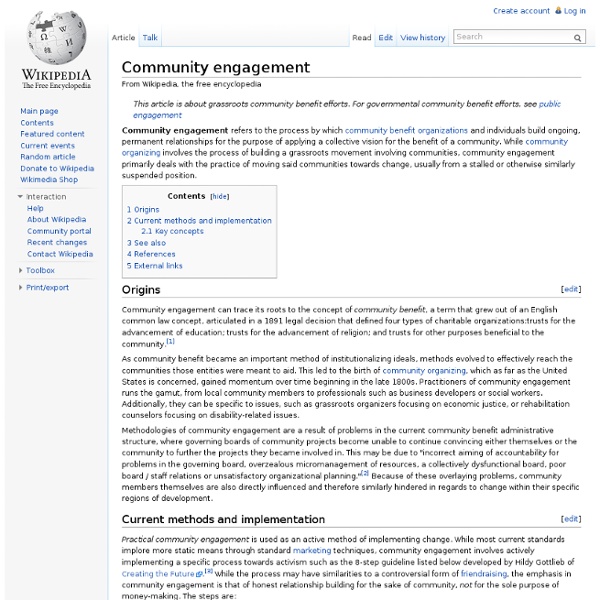Paradigm shift
A paradigm shift (or revolutionary science) is, according to Thomas Kuhn, in his influential book The Structure of Scientific Revolutions (1962), a change in the basic assumptions, or paradigms, within the ruling theory of science. It is in contrast to his idea of normal science. According to Kuhn, "A paradigm is what members of a scientific community, and they alone, share" (The Essential Tension, 1977). Unlike a normal scientist, Kuhn held, "a student in the humanities has constantly before him a number of competing and incommensurable solutions to these problems, solutions that he must ultimately examine for himself" (The Structure of Scientific Revolutions). Kuhnian paradigm shifts[edit] Kuhn used the duck-rabbit optical illusion to demonstrate the way in which a paradigm shift could cause one to see the same information in an entirely different way. Science and paradigm shift[edit] Examples of paradigm shifts[edit] Natural sciences[edit] Social sciences[edit] Marketing[edit] M.
Metasystem transition
A metasystem transition is the emergence, through evolution, of a higher level of organization or control. The concept of metasystem transition was introduced by the cybernetician Valentin Turchin in his 1970 book "The Phenomenon of Science", and developed among others by Francis Heylighen in the Principia Cybernetica Project. The related notion of evolutionary transition was proposed by the biologists John Maynard Smith and Eörs Szathmáry, in their 1995 book The Major Transitions in Evolution. Another related idea, that systems ("operators") evolve to become more complex by successive closures encapsulating components in a larger whole, is proposed in "The operator theory", developed by Gerard Jagers op Akkerhuis. Turchin has applied the concept of metasystem transition in the domain of computing, via the notion of metacompilation or supercompilation. Evolutionary Quanta[edit] See also[edit] References[edit]
Main Page - Metagovernment - Government of, by, and for all the people
Noocracy
Noocracy (/noʊˈɒkrəsi/ or /ˈnoʊ.əkrəsi/), or "aristocracy of the wise", as defined by Plato, is a social and political system that is "based on the priority of human mind", according to Vladimir Vernadsky.[citation needed] It was also further developed in the writings of Pierre Teilhard de Chardin.[citation needed] Etymology[edit] Development[edit] One of the first attempts to implement such a political system was perhaps Pythagoras' "city of the wise" that he planned to build in Italy together with his followers, the order of "mathematikoi." As defined by Plato, Noocracy is considered to be the future political system for the entire human race, replacing Democracy ("the authority of the crowd") and other forms of government. Publications[edit] In the European Commission Community Research publication, Art & Scientific Research are Free: Towards a Culture of Life, it states several commentaries by Hans Jonas and especially Ladislav Kovác about Noocracy.[1] See also[edit] References[edit]
Open-source governance
Open-source governance is a political philosophy which advocates the application of the philosophies of the open source and open content movements to democratic principles in order to enable any interested citizen to add to the creation of policy, as with a wiki document. Legislation is democratically opened to the general citizenry, employing their collective wisdom to benefit the decision-making process and improve democracy.[1] Theories on how to constrain, limit or enable this participation vary however as much as any other political philosophy or ideology. Accordingly there is no one dominant theory of how to go about authoring legislation with this approach. There are a wide array of projects and movements which are working on building open-source governance systems.[2] Applications of the principles[edit] In practice, several applications have evolved and been used by actual democratic institutions in the developed world:[3] Common and simultaneous policy[edit] History[edit]
Sociocracy
Sociocracy is a system of governance, using consent-based decision making among equivalent individuals and an organizational structure based on cybernetic principles.[1] The most recent implementation of sociocracy by Gerard Endenburg,[2] also known as Circular Organizing, was developed as a new tool for governance of private enterprise, but has been adopted in many different kinds of organizations including public, private, non-profit and community organizations as well as professional associations. Origins[edit] The word sociocracy is derived from the Latin and Greek words socius (companion) and kratein (to govern). Ward later expanded on the concept in his books Dynamic Sociology (1883) and The Psychic Factors of Civilization (1892). Sociocracy during the twentieth century[edit] To make sociocratic ideals operational, Boeke used consensus decision-making based on the practices of the Quakers, which he described as one of the first sociocratic organizations. Essential principles[edit]
Game theory
Game theory is the study of strategic decision making. Specifically, it is "the study of mathematical models of conflict and cooperation between intelligent rational decision-makers. Modern game theory began with the idea regarding the existence of mixed-strategy equilibria in two-person zero-sum games and its proof by John von Neumann. This theory was developed extensively in the 1950s by many scholars. Representation of games[edit] Most cooperative games are presented in the characteristic function form, while the extensive and the normal forms are used to define noncooperative games. Extensive form[edit] The game pictured consists of two players. The extensive form can also capture simultaneous-move games and games with imperfect information. Normal form[edit] When a game is presented in normal form, it is presumed that each player acts simultaneously or, at least, without knowing the actions of the other. Characteristic function form[edit] appears, it works against the fraction [edit]



